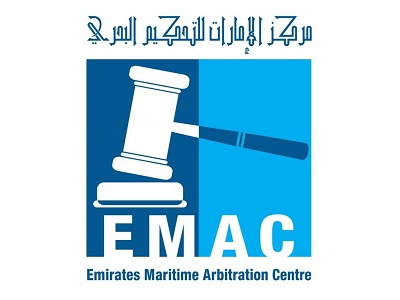Dubai last week launched a special arbitration centre dedicated to resolving disputes in the maritime sector, which is seeing a slowdown globally due to low oil prices and challenging economic conditions.
The Emirates Maritime Arbitration Centre (EMAC) was established following a royal decree issued in April by Sheikh Mohammed bin Rashid Al Maktoum, Vice President and Prime Minister of the United Arab Emirates (UAE) and Ruler of Dubai.
Based out of Dubai International Financial Centre, EMAC will be an independent entity and will offer dispute resolution, mediation and arbitration services to companies in the maritime sector.
The centre will allow cases to be filed and managed online for the first time in the industry and a fast-track service will see decisions delivered within 14 days, instead of the 30 day industry standard, according to a press statement.
“Disputes may be related to pricing, terms of a chartering contract or if a supplier supplies bad fuel,” Edward Newitt, executive committee member of EMAC and a partner at law firm Stephenson Harwood, told Zawya in a phone interview.
Dubai is the world’s third largest transhipment hub, after Hong Kong and Singapore, and the maritime sector is a major contributor to the local economy. The sector accounted for 39 percent of Dubai’s total foreign trade last year, amounting to 501 billion dirhams ($136 billion), according to figures released at the Dubai-Denmark Maritime Symposium this week, an event organised in association with the Dubai Chamber of Commerce and Industry.
However, tougher economic conditions and low oil prices have impacted the global sector. While international shipping companies were previously used to growth of around 7 or 8 percent, this year growth is likely to be flat, according to Lloyd’s List, a shipping industry news provider.
“If people want to get out of a contract or renegotiate terms in the light of changing economic conditions,” Newitt said of the need for EMAC. “Basically it is all about money, where it has cost someone money, if a cargo has been delivered but is wrong, is off spec or has been damaged.”
The slowdown was emphasised in August when DP World, one of the world’s largest port operators, reported that it was delaying plans to increase capacity at Terminal 3 of Dubai’s Jebel Ali port until 2017, while it was also slowing expansion plans for Terminal 4.
“(The) global trade environment remains challenging including for Jebel Ali port,” DP World said then.
The firm handled 7.4 million cargo units in the UAE in the first half of 2016, down 6 percent year-on-year.
Copyright Ships & Ports Ltd. Permission to use quotations from this article is granted subject to appropriate credit given to www.shipsandports.com.ng as the source.

